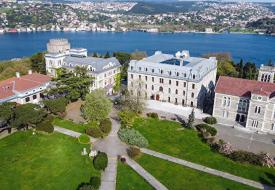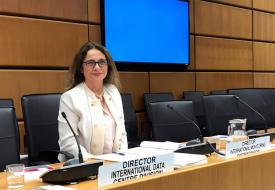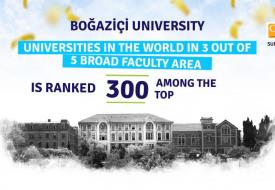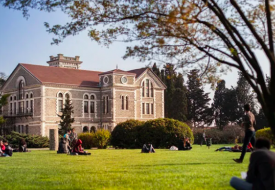Academic from Boğaziçi University will study how patenting rights for artificial intelligence should work
Özgür Arıkan, Assistant Professor at Boğaziçi University Faculty of Law, Department of Intellectual Property Law, is starting a study on the relationship between artificial intelligence and intellectual property law in terms of patent rights under the supervision of Prof. Robert Burrell of Oxford University Law School. Prof. Dr. Arıkan will investigate whether the legal status of Roman slaves can shed light on this debate, drawing on his studies in the field of Roman law at Oxford University Law School, the project's host university.
"THE DEVELOPMENT OF ARTIFICIAL INTELLIGENCE IS CREATING NEW LEGAL GAPS"
Noting that the ever-developing technology of artificial intelligence is creating gaps in many areas, especially in intellectual property law, Assistant Prof. Arıkan summarises the process of the project as follows
"Artificial intelligence has achieved an incredible progress in recent years and continues to grow stronger every day. However, with this developing technology, legal gaps that we could not foresee before are emerging. Therefore, new challenges await lawmakers all over the world. There are also significant gaps in intellectual property law. Artificial intelligence has reached a level where it can both produce works such as drawing pictures and composing music, and make inventions that it can apply for patents. 'So, who should have the rights over the intellectual products developed by artificial intelligence?' This issue raises a legal controversy. We will work to answer this question with our "legAIstatus" project, which has been granted by the Marie Sklodowska-Curie Actions (MSCA)."
"CAN ROMAN LAW SHED LIGHT ON OUR QUESTIONS?"
Assistant Professor Arıkan shares the information that the legal status of slaves in Roman law can also give an idea for artificial intelligence systems. He explains that slaves in Roman law were the object of the law, not the subject of the law:
"Although slaves in the Roman period did not have the rights granted to free people, including the right to own property, some slaves were able to make profits by managing the capital left to them by their owners with their commercial skills. All profits made by the slaves themselves were included in the property of their owners. The owners could only be held indirectly and to a limited extent responsible for the legal liabilities incurred by the slaves in operating the capital. Turning to the present, can this legal status in Roman law provide a solution to the problem of ownership of inventions created by artificial intelligence systems? The answer we are seeking to this question is actually aimed at filling a current legal gap and offering an alternative".
Assistant Professor Arıkan says that by the end of the project, they want to develop an approach that will guide lawmakers. In subsequent stages, he also wants to broaden the issue to look at what happens when artificial intelligence infringes patents and other intellectual property rights of third parties.
Who is Assistant Proffessor Özgür Arıkan?
After graduating from the Faculty of Law of Istanbul University in 2007, Dr. Assoc. Prof. Dr. Arıkan went on to complete a Master's degree in Intellectual Property Law at the University of Manchester, one of the UK's most prestigious higher education institutions. He completed his doctorate in law at the same university. He continues his academic studies at Boğaziçi University Faculty of Law, Department of Intellectual Property Law, specialising in Trademark Law, Design Law, Patent Law and Intellectual Property Law.











